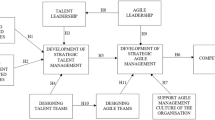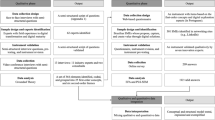Abstract
This present study applies qualitative research method to evaluate the entrepreneurial roles and leadership styles of Elon Musk in Tesla motors. The study places its focus on the general review of Elon Musk’s leadership and attempts to match the leadership traits with some traditional leadership approaches widely recognized in leadership theory. The study employs a structured observation technique assimilating numerous secondary sources with a view to analyzing Musk’s leadership traits in Tesla motor. The results unfold Musk’s leadership attributes and shows that they match more or less with all the traditional leadership approaches but the servant leadership approach. Additionally, the outcomes also demonstrate a new character (entrepreneurial leader) in Musk’s leadership. Finally, the study offers some recommends for Elon Musk to follow, such as the champion/corporate intrapreneur and the servant leadership approaches so that they add practical values in his leading trait. This study will be a guideline for the new entrepreneur and will provide some distinctive ways of improvement in existing entrepreneurship as well as for management literature.

Similar content being viewed by others
Abbreviations
- SEC:
-
United States Securities and Exchange Commission
- USD ($):
-
United States dollar
- IPO:
-
initial public offering
- CEO:
-
Chief Executive Officer
- TL:
-
transformational leadership
References
Bennett, N., & Lemoine, G. J. (2014). What a difference a word makes: Understanding threats to performance in a VUCA world. Business Horizons, 57(3), 311–317.
Biography.com, (2018). Elon Musk biography. Retrieved from: https://www.biography.com/people/elon-musk-20837159.
Blake, R. R., & Mouton, J. S., (1964). The new managerial grid: Strategic new insights into a proven system for increasing organization productivity and individual effectiveness, plus a revealing examination of how your managerial style can affect your mental and physical health. Gulf Pub. Co.
Blazek, K. (2016). The transformational leadership style of Elon Musk. Retrieved from: https://www.truscore.com/360-feedback-resources/leadership-style-of-elon-musk/.
Bloomberg (2018). Elon Musk and Tesla will be radically different after today. Here’s why? Retrieved from: http://fortune.com/2018/12/28/elon-musk-tesla-different/.
Brown, T. (2009). Designers: Think big. TEDGlobal July 2009.
Burns, J. M. (1978). Leadership New York. NY: Harper and Row Publishers.
Clandinin, D. J., & Connelly, F. M. (2000). Narrative inquiry: Experience and story in qualitative research.
Cohen, A. (1992). Antecedents of organizational commitment across occupational groups: A meta-analysis. Journal of Organizational Behavior, 13(6), 539–558.
Conger, J. A., & Kanungo, R. N. (1988). The empowerment process: Integrating theory and practice. Academy of Management Review, 13(3), 471–482.
Dijk, V. M., Davidson, G. & Mecozzi, V. (2017). What is creative leadership? Retrieved from: https://www.thnk.org/insights/what-is-creative-leadership/.
Dirks, K. T., & Ferrin, D. L. (2002). Trust in leadership: Meta-analytic findings and implications for research and practice. Journal of Applied Psychology, 87(4), 611.
Doheny, M., Nagali, V., & Weig, F. (2012). Agile operations for volatile times. The McKinsey Quarterly, 3, 126–131.
Dudovskiy, J. (2018). Tesla leadership: Increasing stakeholder concern with one-man show by Elon Musk. Retrieved from: https://research-methodology.net/tesla-leadership-increasing-stakeholder-concern-with-one-man-show-by-elon-musk/.
Enderwick, B. W. (2018). What Elon Musk gets wrong about leadership. Retrieved from: https://medium.com/s/story/what-elon-musk-gets-wrong-about-leadership-b97794a0e330.
Galek, C. (2018). Elon Musk’s management style proves it pays to be a leader, and not simply a boss. Retrieved from: https://www.inc.com/candice-galek/elon-musks-management-style-proves-it-pays-to-be-a-leader-not-simply-a-boss.html.
Goldring, E., & Greenfield, W. (2002). Understanding the evolving concept of leadership to education: Roles, expectations, and dilemmas. Yearbook of the National Society for the Study of Education, 101(1), 1–19.
Goleman, D. (1998). Working with emotional intelligence and emotional intelligence.
Greenleaf, R. K. (1977). Servant leadership: A journey into the nature of legitimate power and greatness. New York, NY: Paulist Press.
Gromov, R. (2017). Elon behind Iron-man’s mask: Analysing leadership style of Elon Musk. Retrieved from: https://www.linkedin.com/pulse/elon-behind-iron-mans-mask-analysing-leadership-style-roman-gromov/.
Heikka, J., & Waniganayake, M. (2011). Pedagogical leadership from a distributed perspective within the context of early childhood education. International Journal of Leadership in Education, 14(4), 499–512.
Horney, N., Pasmore, B., & O’Shea, T. (2010). Leadership agility: A business imperative for a VUCA world. Human Resource Planning, 33(4), 34.
Kabanoff, B., & Rossiter, J. R. (1994). Recent developments in applied creativity. International Review of Industrial and Organizational Psychology, 9, 283–283.
Katz, R. L. (2009). Skills of an effective administrator. Harvard Business Review Press.
Khan, M. R. (2019). Samson H. Chowdhury: A true entrepreneurial leader for Square Group. EuroMed Journal of Management, 3(2), 80–88.
Kotter, J. P. (1996). Leading change Harvard Business School Press. Boston, MA.
Krishnan, V. R. (2004). Impact of transformational leadership on followers’ influence strategies. Leadership and Organization Development Journal, 25(1), 58–72.
Lahtinen, J. (2017). What is pedagogical leadership? Retrieved from: http://learningscoop.fi/what-is-pedagogical-leadership/.
Lekach, S. (2018). Elon Musk sued by SEC for Tesla privatization tweet. Retrieved from: https://mashable.com/article/elon-musk-sec-tweet-lawsuit/#wi_OOwnTfiqT.
Lewin, K. (1947). Group decision and social change. Readings in social psychology, 3(1), 197–211.
Malhotra, N. K. & Dash, S. (2016). Marketing research: An applied orientation. Pearson,.
Mann, C. J. (2003). Observational research methods. Research design II: Cohort, cross sectional, and case-control studies. Emergency Medicine Journal, 20(1), 54–60.
Matouesek, M. (2019). Former Tesla employees reveal what it’s like to work with Elon Musk. Retrieved from, https://www.businessinsider.com/ex-tesla-employees-reveal-what-its-like-work-elon-musk-2019-9
Mintzberg, H. (1970). Structured observation as a method to study managerial work. Journal of Management Studies, 7(1), 87–104.
Mulhall, A. (2003). In the field: Notes on observation in qualitative research. Journal of Advanced Nursing, 41(3), 306–313.
Muoio, D. (2017). ELON MUSK: Tesla factory injuries 'break my heart'. Retrieved from https://www.businessinsider.com/elon-musk-tesla-factory-injuries-email-2017-6
Peri, C. (2014). 10 things to hate about sleep loss. Retrieved from: https://www.webmd.com/sleep-disorders/features/10-results-sleep-loss#1.
Pollard, C. W. (1996). The soul of the firm, HarperBusiness and Zondervan Publishing House, Grand Rapids, MI.
Quirke, B. (1996). Communicating corporate change. London: McGraw Hill.
Robbins, S. P. & Judge, T. A. (2013). Organizational behavior.
Rost, J. C. (1993). Leadership development in the new millennium. Journal of Leadership Studies, 1(1), 91–110.
Schweiger, D. M., & Denisi, A. S. (1991). Communication with employees following a merger: A longitudinal field experiment. Academy of Management Journal, 34(1), 110–135.
Shapiro, D. L., & Kirkman, B. L. (1999). Employees’ reaction to the change to work teams: The influence of “anticipatory” injustice. Journal of Organizational Change Management, 12(1), 51–67.
Simic, I. (1998). Transformational leadership - the key to successful management of transformational organizational changes. Facta Universitatis Series: Economics And Organization, 1(6), 49–55.
Snyder, C. B. (2018). Elon Musk and path-goal theory, Retrieved from: http://sites.psu.edu/leadership/2018/02/18/elon-musk-and-path-goal-theory/.
Spears, L. (1995). Servant-leadership and the Greenleaf legacy. In: Spears, L. (Ed.), Reflections on leadership: how Robert K. Greenleaf’s theory of servant-leadership influenced today’s top management thinkers. John Wiley & Sons, Inc., New York, NY, pp. 1–14.
Spears, L. (1996). Reflections on Robert K. Greenleaf and servant-leadership. Leadership & organization development journal.
Spreitzer, G. M. (1995). Psychological empowerment in the workplace: Dimensions, measurement, and validation. Academy of Management Journal, 38(5), 1442–1465.
St. Thomas University (2018). What is charismatic leadership? Leading through personal conviction. Retrieved from: https://online.stu.edu/articles/education/what-is-charismatic-leadership.aspx.
Steward, J. B. (2018). A Question for Tesla’s Board: What Was Elon Musk’s Mental State? Retrieved from https://www.nytimes.com/2018/08/15/business/elon-musk-tesla-board.html.
Strathmann, D. (2016). Multicultural leadership defined by leadership development experts. Retieved from: http://crestcomleadership.com/2016/10/06/multicultural-leadership-defined-by-leadership-development-experts/.
Synergos., (2017). Bridging leadership. Retrieved from: https://www.synergos.org/bridging-leadership.
Thomas, K. W., & Velthouse, B. A. (1990). Cognitive elements of empowerment: An “interpretive” model of intrinsic task motivation. Academy of Management Review, 15(4), 666–681.
Thompson, A. A. & Strickland, A. J. (2003). Strategic management: Concepts and cases. The Managerial Process of Crafting and Executing Strategy. tata Mc Graw. New Delhi. p34.
Walshe, C., Ewing, G., & Griffiths, J. (2012). Using observation as a data collection method to help understand patient and professional roles and actions in palliative care settings. Palliative Medicine, 26(8), 1048–1054.
Williams, J. (2018). Lesson 6: Contingency and path theories. Pennsylvania State University, PSYCH 485: Leadership in work settings. Retrieved from: https://psu.instructure.com/courses/1923777/modules/items/23736221.
Wimmer, K., Stiles, J., & Abrams, B. (2001). The observational research handbook: Understanding how consumers live with your products. Journal of Advertising Research, 41(1), 91–91.
Zellars, K.L. & Tepper, B.J. (2003). Beyond social exchange: New directions for organizational citizenship behavior theory and research. In Research in personnel and human resources management (pp. 395–424). Emerald Group Publishing Limited.
Acknowledgements
I first acknowledge Allah’s kindness, who has given me strength and wisdom for learning. Then, I acknowledge my parents’ and wife’s full support of my work and finally the anonymous reviewers who have helped me to outline the paper to a publishable shape.
Availability of data and materials
Data of that research has been collected from secondary sources, journal articles, newspaper, magazines, blogs, etc.
Author information
Authors and Affiliations
Contributions
The author prepared the full article based on the secondary data.
Corresponding author
Ethics declarations
Ethics approval and consent to participate
Not applicable.
Competing interests
The authors declare no competing interests.
Rights and permissions
About this article
Cite this article
Khan, M.R. A critical analysis of Elon Musk’s leadership in Tesla motors. J Glob Entrepr Res 11, 213–222 (2021). https://doi.org/10.1007/s40497-021-00284-z
Received:
Accepted:
Published:
Issue Date:
DOI: https://doi.org/10.1007/s40497-021-00284-z




